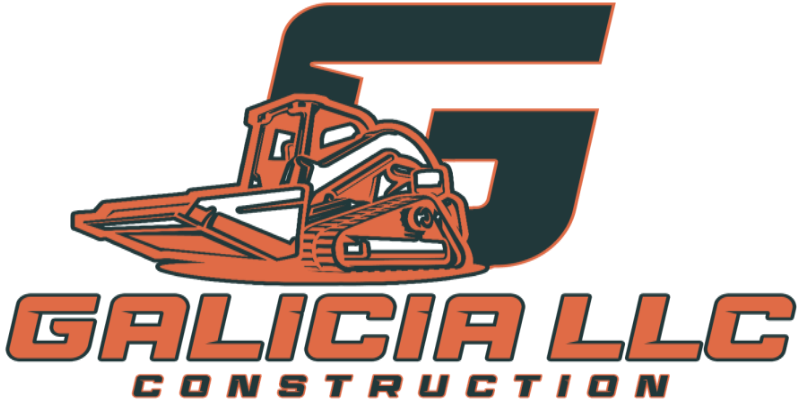How Much Does a Concrete Driveway Cost? A concrete driveway offers durability, functionality, and curb appeal to your home. However, knowing the cost before starting your project can help you set realistic expectations and stay within budget. So, how much does a concrete driveway cost? Prices can vary widely depending on several factors such as size, thickness, finishing options, and location. This article will break down the costs, provide insights into influencing factors, and offer helpful tips for saving money on your concrete driveway project. Understanding the Basics of Concrete Driveway Costs A standard concrete driveway typically costs between $4 and $15 per square foot. This translates to an average total cost of $1,800 to $6,000 for most residential driveways, depending on their size and design. While basic concrete is more affordable, decorative options, reinforcements, and customization can increase the price. Factors That Influence the Cost of a Concrete Driveway Size and Dimensions of the Driveway The size of the driveway is one of the most significant factors in determining the overall cost. A small driveway for a single car will cost far less than a spacious driveway designed for multiple vehicles. Larger areas require more materials, labor, and time, which can significantly increase costs. Thickness of the Concrete Standard residential driveways typically use 4-inch-thick concrete. If your driveway needs to support heavy vehicles, you may need 6-inch-thick concrete, which costs more due to the extra materials and labor involved. Type of Concrete Used Basic concrete is the most affordable option, but specialized types such as high-strength concrete, stamped concrete, or colored concrete can elevate both costs and aesthetic appeal. Stamped concrete, for instance, mimics stone, brick, or tile and usually costs $8 to $18 per square foot. Preparation and Grading Before pouring concrete, the ground must be graded and prepared. This step can involve excavation, soil testing, or adding a gravel base, which increases labor costs. Uneven or sloped terrain requires more effort, further raising the total price. Reinforcement and Finishes Adding reinforcement such as rebar or wire mesh strengthens the driveway but adds to the cost. Decorative finishes, such as textured patterns or polished surfaces, also increase expenses but enhance the driveway’s appearance. Average Costs by Driveway Size Driveway Size (Feet) Approximate Area (Square Feet) Estimated Cost Range 10 x 20 200 $800 – $3,000 12 x 24 288 $1,150 – $4,300 24 x 24 576 $2,300 – $8,600 24 x 36 864 $3,450 – $12,900 This table offers a rough estimate based on square footage. Final costs will depend on additional factors like materials and labor rates in your area. Labor Costs for Concrete Driveway Installation Labor typically accounts for 50% of the total cost. On average, contractors charge $3 to $10 per square foot for installation, depending on the complexity of the project. Hiring experienced professionals ensures quality work but may cost more. Additional Costs to Consider Permits and Inspections Many local governments require permits for driveway installation, which can cost $50 to $200. Some areas may also require inspections, adding to your overall budget. Sealing the Concrete Sealing a driveway protects it from stains, cracks, and weather damage. Sealant application costs about $0.50 to $2 per square foot, but it’s a worthwhile investment for long-term durability. Demolition and Removal of Existing Driveway If you’re replacing an old driveway, you’ll need to factor in the cost of demolition and removal. This service typically costs $1 to $4 per square foot. How Much Does a Concrete Driveway Cost with Decorative Options? If aesthetics are a priority, decorative options like stamped or stained concrete can significantly enhance your driveway’s appearance. These finishes cost $8 to $18 per square foot on average. High-end finishes like exposed aggregate or custom patterns can go as high as $25 per square foot. Tips to Save Money on Your Concrete Driveway FAQs What is the cheapest option for a concrete driveway?Plain concrete is the most affordable option, typically costing $4 to $8 per square foot. Adding decorative features or reinforcements increases the price. How long does a concrete driveway last?A well-maintained concrete driveway can last 30 to 40 years or more. Regular sealing and prompt repair of cracks can extend its lifespan. Is stamped concrete worth the extra cost?Stamped concrete adds a luxurious appearance and can mimic high-end materials like stone or brick. While it’s more expensive, it’s an excellent choice for enhancing curb appeal. How can I avoid cracks in my concrete driveway?Proper installation, including reinforcement with rebar or wire mesh, and regular maintenance like sealing, helps prevent cracks. Expansion joints are also crucial to accommodate temperature-related movement. Are concrete driveways environmentally friendly?Concrete is a durable and recyclable material, but its production has a high carbon footprint. Consider eco-friendly options like permeable concrete to reduce environmental impact. How much does it cost to maintain a concrete driveway?Maintenance costs, including sealing and occasional repairs, range from $100 to $300 annually. Conclusion A concrete driveway is a durable and attractive addition to any home, offering both functionality and increased property value. While costs vary depending on size, materials, and finishes, understanding these factors will help you plan your budget effectively. By considering basic options and strategically timing your project, you can achieve a stunning driveway that suits both your needs and finances.




